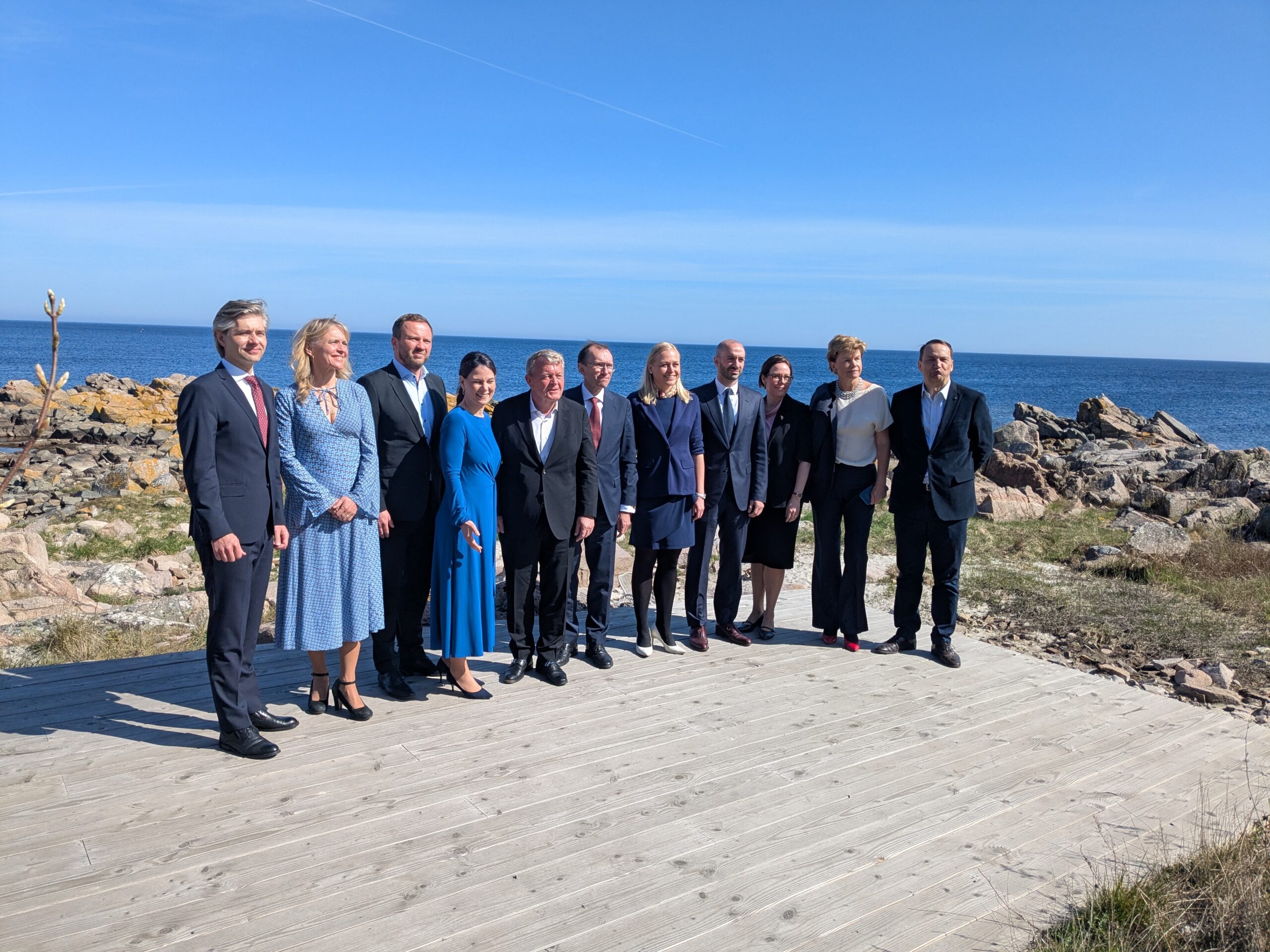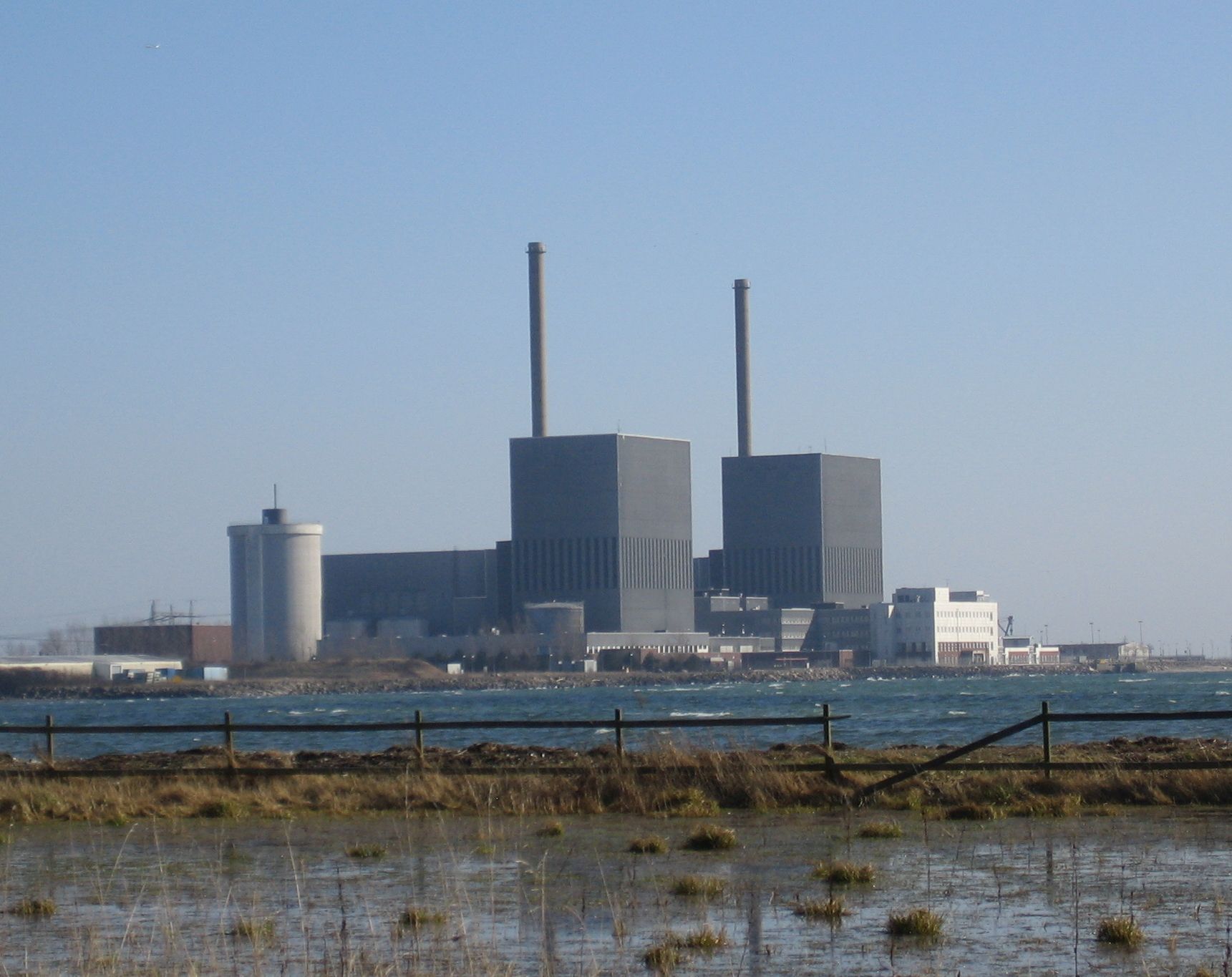BORNHOLM, DENMARK – Foreign ministers from 11 European countries convened at a security summit on the Danish island of Bornholm this week to discuss the war in Ukraine and latest geopolitical and security situation in the Nordic and Baltic region.
Officials from the eight countries of the Nordic-Baltic Cooperation (NB8) – Denmark, Finland, Iceland, Norway, Sweden, Latvia, Estonia, and Lithuania – were joined on the island by counterparts from Germany, France, and Poland.
Eroding Russian military and economic strength, achieving long-term sovereignty for Ukraine, and strengthening European security and independence were top of the agenda.
Speaking at a joint press conference on Tuesday afternoon, Danish foreign minister Lars Løkke Rasmussen labelled the event “a clear signal that we remain fully committed to supporting Ukraine” and expressed the group’s readiness to seize frozen assets and implement new tariffs on Russia to pressure Moscow towards a peace deal.
“We know that Russia’s economy is much weaker than they want to say, and we have to maintain momentum,” said Swedish Foreign Minister Maria Malmer Stenergard, and called for a 17th sanctions package focused on “sectors that really matter – the financial sector, the energy sector, and the shadow fleet”.
Finnish Foreign Minister Elina Valtonen said that existing efforts to “step up” defence would continue, and Icelandic Foreign Minister said that Ukraine’s future membership of the EU and of NATO remains on the table.
The ministers of Lithuania, Estonia and Latvia also expressed united opposition to the notion of a US-Russian restart of the Nord Stream pipeline project, underscoring that all European countries should “get off” Russian gas, as they have.
The NB8 talks come after Russian President Vladimir Putin announced a three-day ceasefire in Ukraine on May 8-11, coinciding with victory celebrations in Moscow to mark the end of World War Two.
Responding on X, Ukrainian President Voldomyr Zelenskyy called it “another attempt to manipulate the world” and “deceive the United States”, adding: “For some reason everyone is supposed to wait until May 8 before ceasing fire — just to provide Putin with silence for his parade.”
The Kremlin had previously declared a 30-hour truce over Easter, only to violate it hundreds of times. And Russia yet again targeted Kyiv in overnight drone attacks on 29 April, injuring one and damaging civilian infrastructure in the Desnyanskyi district, as the NB8 summit was underway.
Lithuanian Foreign Minister Kęstutis Budrys emphasized that, for Putin, “bombs speak louder than diplomacy”, and described the Russian President’s evasion of a ceasefire as “the very essence of [his] art of negotiation”.
“Putin avoids ceasefire because he would lose his main instrument: the terror leverage that he is using.”
Throughout March and April, leaders from 31 of Ukraine’s allies have held talks, under the newly-established ‘coalition of the willing’, on how to police an eventual Ukraine-Russia peace deal.
Progress has been hamstrung, however, by Russia’s maximalist conditions for negotiations.
On Monday 28, Foreign Minister Sergey Lavrov said Russia would only agree to a peace deal if the world recognizes Crimea and other occupied territories as Russian – a proposal consistently rejected by Kyiv.
U.S. President Donald Trump has attempted in recent weeks to broker a ceasefire between the two countries, stating that Crimea would remain under Russian control, and telling Zelenskyy, “you don’t have the cards”.
However, after saying a deal was “very close”, Trump on Saturday expressed doubts that Putin wants to end the war, and condemned Russia’s strike on civilian targets over Easter.
“There was no reason for Putin to be shooting missiles into civilian areas, cities and towns, over the last few days,” Trump wrote in a social media post after meeting privately with Ukrainian President Volodymyr Zelenskyy during Pope Francis’ funeral at the Vatican in Italy.
“It makes me think that maybe he doesn’t want to stop the war, he’s just tapping me along, and has to be dealt with differently, through “Banking” or “Secondary Sanctions?” he added.
On Sunday, American Secretary of State Marco Rubio told U.S. media that this week will be “very critical” for Russia-Ukraine negotiations, with Washington weighing whether to “continue to be involved” in the “endeavour”.
Despite the US-EU disagreement over future action on Crimea, France’s EU Minister Benjamin Haddad thanked “our friends in the United States” for attempts to open communications with Russia, emphasizing “shared priorities” for “a ceasefire [that] is not just a break that Russia uses to rearm and re-attack.”
Reuters says that it has seen counter-proposals from Europe and Ukraine, in which the sides will only discuss an outcome for occupied Ukrainian territory under ceasefire conditions.
Polish Foreign Minister Radosław Sikorski said he hoped that President Trump would “come round to our view” and alluded to “a mission” that his NB8 colleagues had tasked him with ahead of the upcoming informal meeting of EU foreign ministers in Warsaw.
The so-called Gymnich meeting, which will take place on May 8, will focus on Russia’s aggression against Ukraine, EU-US relations, and European security policy towards hybrid threats.













